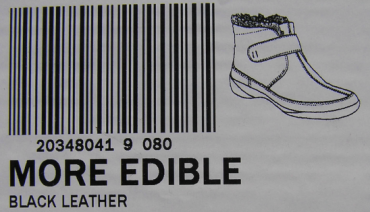
by Sandra Davies
But despite a moment when I held the floor – when midway through the occasion she received a heavy-breathing-then-suggestive phone call, similar to one I’d had a couple days previously, and I could reassure and explain that laughter effectively dissuaded (which I’d done accidentally, thinking it a friend of my husband, playing a trick) – I discovered nothing had changed. I was as tongue-tied, incapable of both thought and speech and as bored and claustrophobic as ever. Without a shared interest, a reason to be there, such as the demonstration of the (excellent) children’s books I sold via party plan, I was incapable of functioning at a purely social, neighbourly coffee morning.
by Paul de Denus
Crissetti sped north on I- 80, the First National telescoping down his rearview mirror. Two bags with overflow cash rustled next to him. The bank had been virtually empty, an easy knock-off. He licked his lips, fired up a blunt and eased off the gas. Stay cool. No time to draw attention.
He’d spent his whole life in Loomis; the bank job now paid his way out. Though he loved the dreamy comfort of California, there were more worlds waiting. For the next several miles of open stretch, Crissetti absorbed his surroundings, passing through California’s dry yellow hills, clusters of pine, eucalyptus and juniper and a heavy patch of tule fog that rolled over the highway. Exiting it, he viewed the trees, road and sky again, imagined the exact same scenery anywhere in America. Could be in Pennsylvania or Tennessee, he mused. A smile zigzagged his face as he crossed into Nevada.
The mile marker indicated the town of Sparks up ahead. He saw a gas station and started to pull in. Stupid Sloan stood at the pump, a finger pointing at him. Just beyond, sat the bank. Anywhere in America, Crissetti thought as police cars wailed. Behind him too.
by Bill Lapham
I straightened my arm in front of my face and touched something solid, wooden. I pressed against it and it didn’t move. I felt a surge of adrenaline and tried to resist the onset of panic. I relaxed my arm and set it down by my side. I was breathing very fast. Too fast, I decided, and tried to slow it down, tried to relax, like when somebody is taking my blood pressure.
I could feel the various parts of my body, wriggled my fingers and toes, turned my head from side to side. I was thinking, therefore Descartes could have been right. I was pretty sure I was alive.
I lifted my arm again and this time pushed as hard as I could against the solidness above me. It moved, fractionally, and a ray of light entered the box. Encouraged, I continued to push the lid open and as quickly as the panic had set in, it vanished, leaving me relieved, relaxed and pleased. I climbed out of my friend’s cargo trailer and went inside his house.
“Where the hell have you been?” he asked.
“Out getting a second chance,” I said.
by Gita M. Smith
The jukebox was set on soft, but I could still hear the words of a long-ago and far-away song: “The kids in Bristol are sharp as a pistol when they do the Bristol Stomp.”
Next to me, a slouch of a drinker mumbled, “Far out song.”
A sidelong glance showed me shaggy hair and bell-bottoms.
“Help you?” the bartender asked.
“A Cosmopolitan, please” Sal said, lighting a Doral 100.
“Wow, never seen that brand before,” Slouchy said.
The bartender told Sal he’d never heard of a Cosmo.
We ordered two Buds instead, but something had started nagging at me.
The cash register was the old-fashioned, non-computer type. The two beers had cost $1.
“How much to play the jukebox?” I asked.
“Nickel gets you one, a quarter buys six,” barkeep replied, still perusing his guidebook for Cosmos.
Sal and I exchanged an electric look, the kind that couples sometimes share.
She approached the jukebox as if it were a hot stove. A small scream escaped her lips. All her high school favorites were there: “Poetry in Motion,” “Palisades Park,” and “You’re Sixteen.”
I knew the answer, but still had to ask, “Bartender, who’s the vice president nowadays?”
“Lyndon Johnson!” he said disdainfully.
That’s when Sal grabbed me and we ran to our car – the only one in the parking lot without a carburetor.
by Michael D. Brown
The stout, elderly woman, smiling at Everett on his way to the curb, did not seem to think it odd he was not taking the Chevy. She could not have known he was not on his way to work, nor that it was possibly the last time their eyes would meet, though she might have intuited he would not be returning for Round Two in the evening. She must have overheard most of the shenanigans occurring with increasing frequency those days inside 2513, but kept her own counsel and made the most of a morning’s greeting.
Now, Everett went about mostly on foot, uncomfortable dickering in high school Spanish with taxi drivers, unconscionably excessive in overtipping according to his past norms, and ineluctably excluded from newfound neighbors.
Standing in his garden late one afternoon, Señor Cal y Mayor appeared to be contemplating some unpardonable misstep, as the water delivery truck dragged chains and pieces of bent steel clanging down the road, and five girls sang out a choosing song, familiar only to themselves, while one tiny urchin dressed in tatters, barefooted, clutched a weathered doll to her chest and stared longingly, shifting her gaze between the man among the roses and the laughing children, never looking at Everett.










